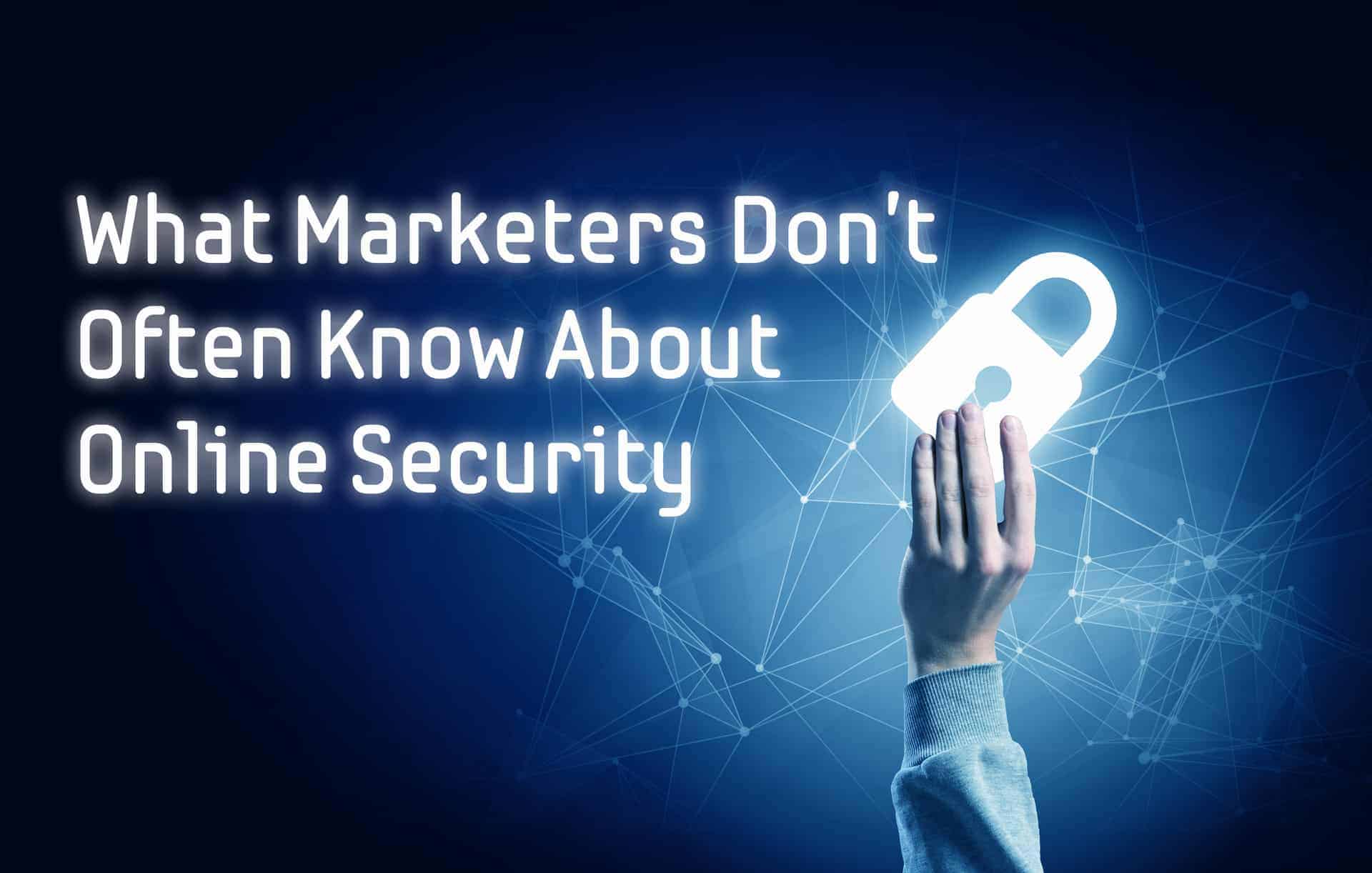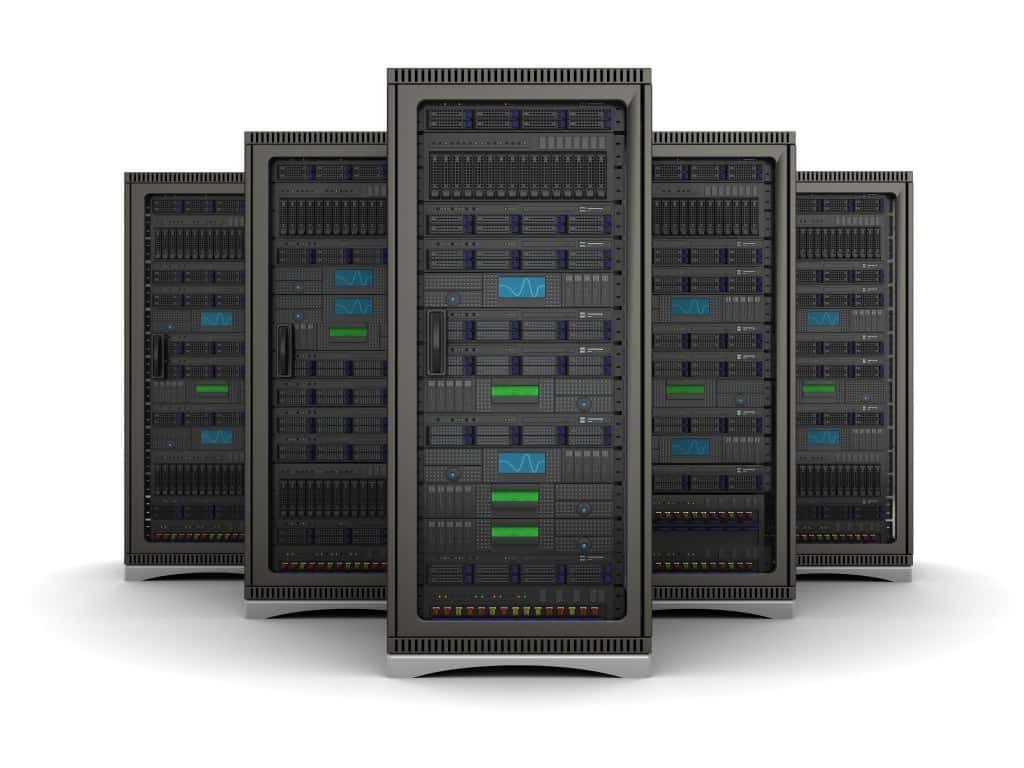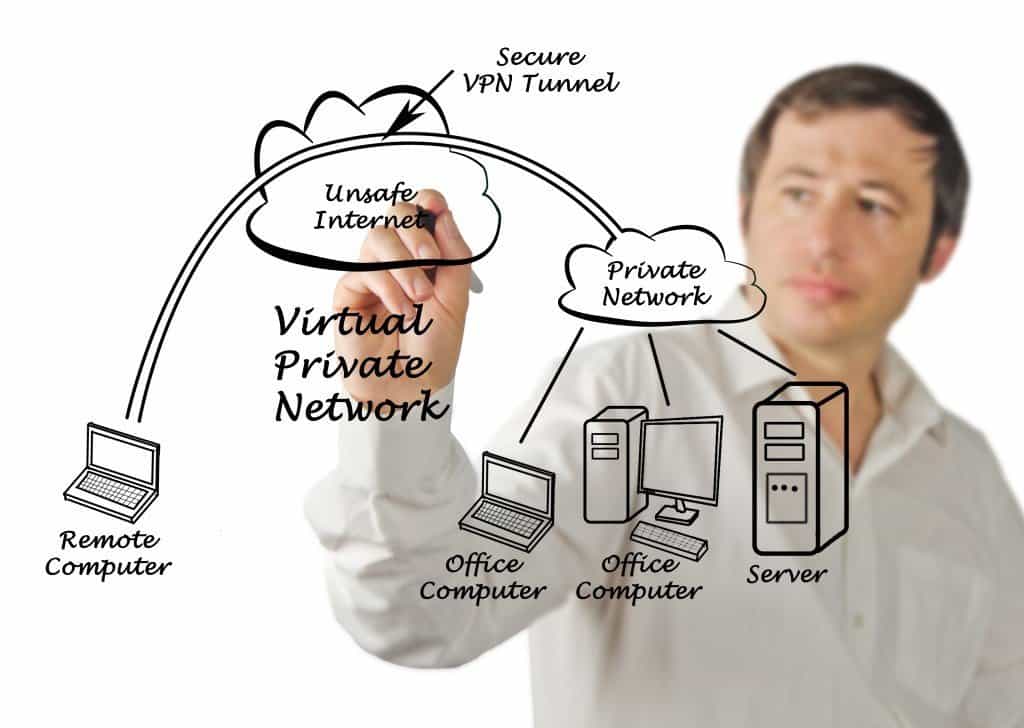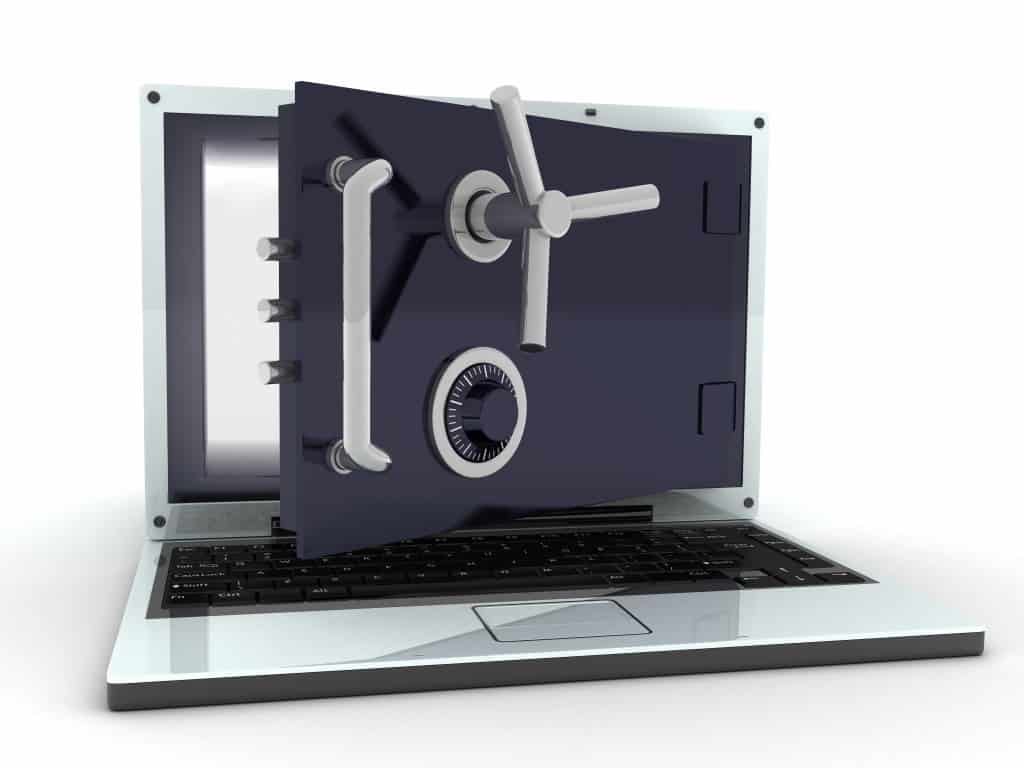
What Marketers Don’t Often Know About Online Security


I’d like to thank BKA Content for featuring this post on their blog. I’ve found this site to be a great source of information for online marketing and SEO work, and love their frequent and informative posts. Check out this article on driving traffic to your site with fresh content.
It’s a cutthroat world out there. Staying ahead of the competition can be so challenging, and more often than not, we find ourselves spending just as much time learning new techniques and angles as we do on promoting the content of our site. There’s always a new trick or trend with content marketing, and there is so much that can be learned just by observing our competition.
One thing you can’t learn by following trends though is how to integrate common sense security practices into your marketing work. These are things that go on behind the scenes with most sites, and the less you hear about it, the better it tends to be working out.
Increasingly more often, lawmakers are recognizing the responsibility companies have to their customers to protect their information from hackers. You can’t just chock it up to cybercrime anymore. If you’re not actively taking steps to secure your site’s information while you conduct business, you could actually be found negligent, and legal action can be taken against you if your site is ever infiltrated.
Online marketing demands a lot of information from you, and if you’re not taking precautions, that information can lead criminals right back to your site and compromise your security. Before you jump back into your next work session, read these tips and consider how much information about your company is floating around out there. Is it worth the risk?
Practice Sensible Network Security
Let’s start with the basics: where you use the internet to conduct your work. It’s not just a simple matter of making sure someone isn’t looking over your shoulder. These days for $100 and a few hours on some dark corners of the internet, anyone can rig together a setup to hop on an unsecured network and intercept your data.
It’s just not that hard, and these hackers are smart. Often they’ll target public places such as coffee shops where they know professionals are hard at work. By simply sitting within range of the network, they can locate your device, intercept your data and steal everything from login details to personal information.

Ideally, you always want to use the internet on a secured network to conduct business. This means using a network that is password protected, as well as changing the default name of the network. Often hackers can find the weakness of a system by determining the manufacturer of the router, which is often linked to the default name of the network.
If you need to do some market research or link building, make sure that your site’s login credentials aren’t at risk of being swiped over an open network.
Once you’ve secured your office network, start taking careful consideration of what you do on public WiFi. Is it worth the risk to conduct business on an open network that anybody could be using? Not without some precautions.
Get really familiar with your device’s network and sharing settings. Make sure that things such as “device sharing” and “network discovery” are turned off. This makes it harder for criminals to locate your device on a network, and makes it less likely that you’ll be targeted.
All in all though, these adjustments are pretty minimal. If you plan to use public WiFi on a pretty regular basis, you need to install a Virtual Private Network (VPN) on all of your devices.
What is a VPN?

A VPN is a subscription service designed to give you access to commonly geo-restricted services such as Netflix and Skype, but it also has the added benefit for allowing you to browse privately and anonymously.
When you sign up for a VPN, you get access to software that you can download to most devices. Once installed, select a server in a location with access to the content you want. This is where it comes in handy for those who have to take their work overseas. Once you’ve decided on a server location, connect.
From there, your IP address—the unique code associated with your device—is hidden, and you’re given one associated with the server you’ve selected. You have access to any content available in that server location, and from a marketing tools perspective, this is kind of neat, because it means you see exactly what other viewers in that area see when they get online.
Aside from all of that though, a VPN fully encrypts your data from the moment you connect, so that everything you do online with it is completely private and secure. You never have to worry about hackers making off with sensitive information. Just use a VPN any time you’re on public WiFi, and your data is fully protected.
As a marketer, you probably already have a slew of browser extensions and web tools at your disposal, but make no mistake, a VPN needs to be a part of that tool kit to ensure you’re protecting your site when conducting business over public networks.
Back to the Basics: Password Security
I feel like this topic has been beaten to death when it comes to securing websites and blogs, but seriously, let’s talk about it some more, because poor password security is still a major cause of infiltration.
Your login information is quite literally your keys to the kingdom. Anybody who gets ahold of it can quickly change your password and lock you out of your own site, so treat passwords with a lot of respect and care. Using the same password over and over again for your various marketing accounts may make them easier to remember, but it also has the effect of daisy-chaining these accounts together. If one gets hacked, the rest will quickly follow.

Choose unique passwords with plenty of number and symbols in them. Avoid using commonly known information about yourself in a password, such as the name of your site or your own name. Using a new technique called social engineering, many hackers are learning that they can actually learn passwords by tricking victims into revealing this kind of personal information about themselves.
All of those apps, extensions and web services you use typically require login information, and while it may be tempting to make all of your passwords the same for them, you’re putting yourself at massive risk by doing so. Remember: you have a lot of information about your site in these accounts; do you really want that falling into the wrong hands?
If you struggle to remember passwords, instead of keeping them in a file or a notebook somewhere, consider signing up for a password management service. These handy apps use one ultra-secure login key to keep all of your passwords secure, so you never have to remember them all. They’re also typically encrypted.
Regardless of where your priorities lie, it’s important to remember that your information is really valuable to more than just you. If you’re not taking security seriously when you’re working on your site, someone is bound to notice eventually.
You can be on the cutting edge of every SEO tactic and link building exercise there is, but ultimately if you’re not engaging security practices with your day-to-day marketing work, you’re leaving the back door open to hackers and setting yourself up for a tremendous amount of liability if your site is hacked and your customers’ information is stolen.
Keep your plugins up to date, use public WiFi intelligently and pay particularly close attention to your login information and who you give access to. Above all else, you can’t buy marketing as good as a website with a reputation for great security.
- What Marketers Don’t Often Know About Online Security - February 23, 2016


